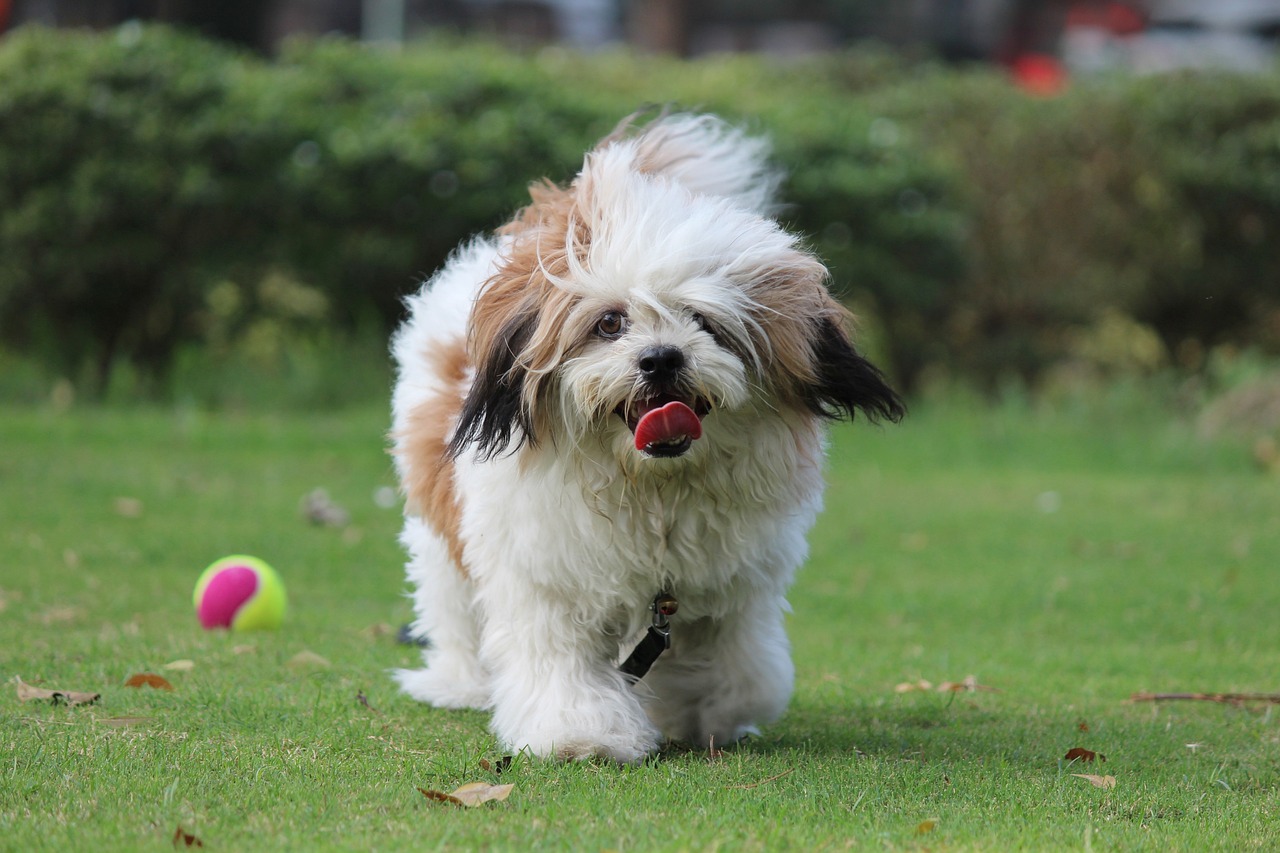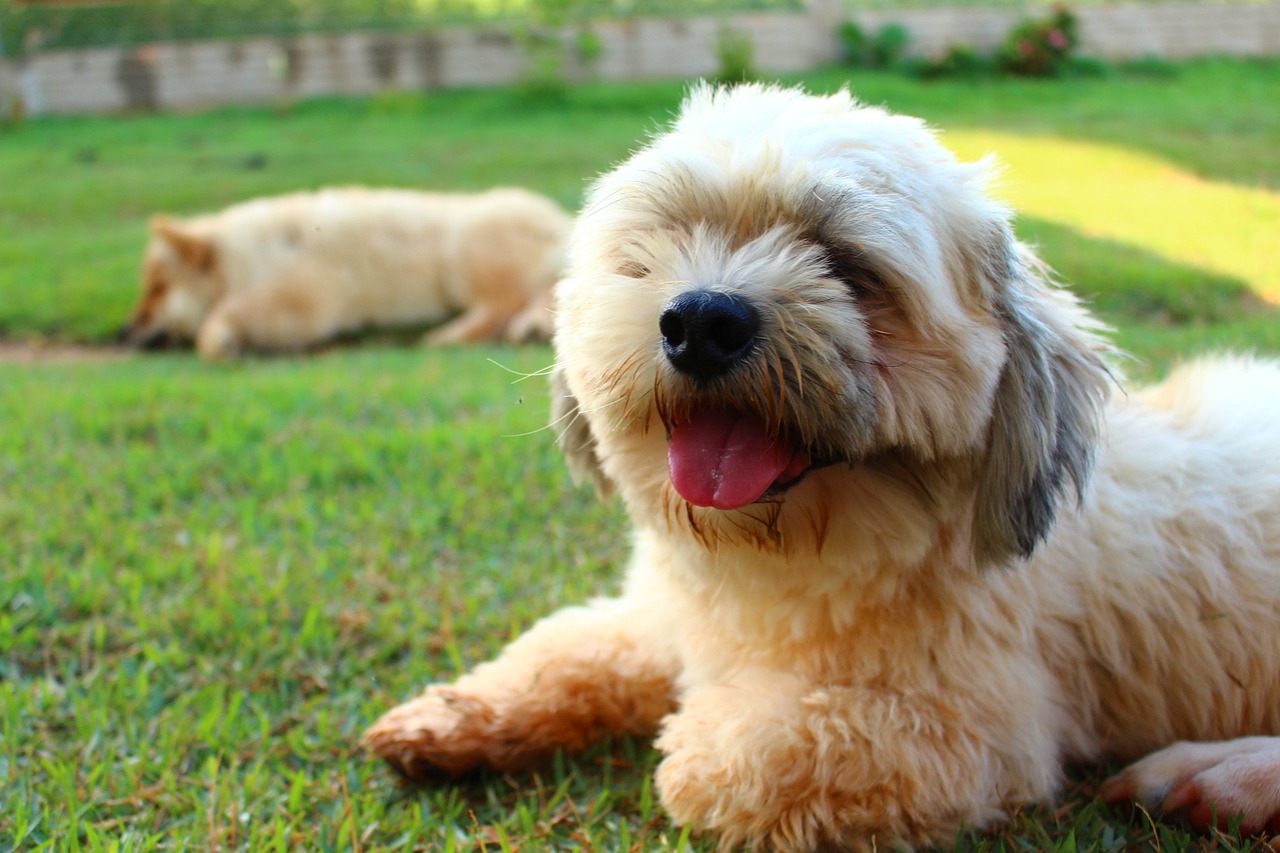Pets
What’s The Chew Pressure of a Lhasa Apso & Does It Harm?
The Lhasa Apso, with its distinct lengthy coat and aristocratic demeanor, is a breed that hails from the Tibetan mountains. Initially bred as a sentinel canine for Tibetan monasteries, the Lhasa Apso has a robust protecting intuition. However simply how robust is a Lhasa Apso’s chew? And in the event that they had been to chew, wouldn’t it harm? This text delves deep into the world of Lhasa Apso chew dynamics.
How Do We Measure the Chew Pressure of a Lhasa Apso?
Chew pressure in canine is usually measured in kilos per sq. inch (PSI). This metric provides a quantitative worth to the quantity of stress a canine can exert with its jaws. Whereas there are normal figures for a lot of breeds, figuring out an actual PSI for each breed, together with the Lhasa Apso, could be difficult on account of particular person variances and the restricted variety of research targeted on particular breeds.
Estimated Chew Pressure of a Lhasa Apso
Given the Lhasa Apso’s measurement and anatomy, their chew pressure is significantly lower than bigger breeds. Whereas an actual PSI for the Lhasa Apso isn’t universally agreed upon, it’s cheap to imagine that it falls in step with different small breeds, which is significantly decrease than the chew forces recorded for bigger canine.
Anatomy of the Lhasa Apso’s Jaw
The Lhasa Apso’s jaw construction and enamel are much like different small canine breeds. They’ve a set of 42 grownup enamel comprising incisors, canines, premolars, and molars. Whereas these enamel are sharp and might definitely pierce the pores and skin, the Lhasa Apso’s jaw doesn’t have the facility that bigger breeds possess. Its major operate is for greedy and chewing somewhat than exerting important pressure.
Does a Lhasa Apso’s Chew Harm?
If a Lhasa Apso had been to chew, the feeling would rely upon a number of elements: the canine’s intention, the bitten space’s sensitivity, and the chew’s length. Given the Lhasa Apso’s measurement and jaw power, their chew is much less potent than that of bigger breeds. Nevertheless, a chew can nonetheless break the pores and skin, trigger ache, and result in potential infections if not correctly handled.
The Protecting Nature of the Lhasa Apso
Traditionally, the Lhasa Apso was bred to be an alert and protecting sentinel in Tibetan monasteries. This heritage means the breed could be cautious of strangers and probably protecting of its household and territory. Understanding this habits is essential when decoding why a Lhasa Apso would possibly chew. It’s not essentially out of malice, however somewhat an ingrained protecting intuition.
Coaching Your Lhasa Apso to Decrease Biting Dangers
Efficient coaching from a younger age is important to make sure that a Lhasa Apso doesn’t resort to biting:
- Early Socialization: That is essential for Lhasa Apsos. Exposing them to varied individuals, locations, and experiences will help scale back their inherent wariness of strangers.
- Optimistic Reinforcement: Rewarding good habits somewhat than punishing damaging habits is the important thing. It creates a optimistic studying surroundings for the Lhasa Apso.
- Educate Chew Inhibition: If a Lhasa Apso pet is liable to nipping, educating them chew inhibition can management this habits as they mature.
Conclusion
The Lhasa Apso, whereas small in stature, has a robust persona and protecting intuition. Their chew pressure just isn’t among the many strongest within the canine world, however it could actually nonetheless trigger discomfort in the event that they resolve to chew. Correct understanding, coaching, and socialization of the Lhasa Apso are important to make sure harmonious interactions and reduce any danger of biting.
Often Requested Questions About Lhasa Apso Bites
1. Are Lhasa Apsos naturally aggressive biters?
No, Lhasa Apsos are usually not inherently aggressive. Nevertheless, they had been bred as sentinel canine in Tibet, which suggests they’ve a robust protecting intuition. Correct socialization and coaching are important to make sure they don’t turn out to be overly protecting or aggressive.
2. Why does my Lhasa Apso pet nip throughout play?
Nipping throughout play is a typical habits in lots of puppies, together with Lhasa Apsos. It’s a method they discover their world and interact in playful habits. Instructing them chew inhibition early on will help handle and scale back this habits as they develop.
3. How can I stop my Lhasa Apso from biting strangers?
Early and constant socialization is the important thing. Exposing your Lhasa Apso to varied individuals, environments, and conditions will help them turn out to be extra accustomed to strangers and scale back their protecting instincts in unfamiliar conditions.
4. What ought to I do if my Lhasa Apso bites somebody?
Firstly, guarantee the security of everybody concerned. Safe your Lhasa Apso, verify the chew’s severity, and search medical consideration if obligatory. Then, consider the circumstances resulting in the chew and think about consulting knowledgeable canine coach or behaviorist to handle any behavioral issues.
5. How robust is a Lhasa Apso’s chew in comparison with different breeds?
The Lhasa Apso, being a small breed, doesn’t have as robust a chew pressure as bigger breeds. Whereas an actual measurement isn’t broadly agreed upon, their chew is usually in step with different small breeds and is significantly weaker than bigger canine.
6. Are Lhasa Apsos extra liable to biting than different breeds?
Not essentially. Whereas Lhasa Apsos could be cautious of strangers on account of their historic position as sentinel canine, with correct coaching and socialization, they shouldn’t be extra liable to biting than every other breed.
7. My Lhasa Apso appears to protect its meals and toys aggressively. Is that this regular?
Useful resource guarding can happen in lots of breeds, together with Lhasa Apsos. It’s important to handle this habits early on via coaching, educating instructions like “depart it” and “drop it,” and guaranteeing that your canine feels safe throughout feeding occasions.
8. Why does my Lhasa Apso growl when approached by unfamiliar individuals?
Given their historic position as guard canine in monasteries, Lhasa Apsos could be naturally cautious of strangers. Growling generally is a warning signal or an expression of discomfort. Correct coaching and socialization will help them turn out to be extra comfy round new individuals.
9. Is neutering or spaying my Lhasa Apso efficient in lowering biting tendencies?
Whereas neutering or spaying can scale back some aggressive tendencies in canine, it’s not a assured resolution for biting. Correct coaching and socialization stay the simplest methods to handle and stop aggressive behaviors.
10. How can I train my Lhasa Apso chew inhibition?
Partaking in managed play periods, utilizing toys to redirect biting habits, and providing optimistic reinforcement when your Lhasa Apso makes the best decisions are efficient methods. If the nipping or biting persists, think about in search of assist from knowledgeable canine coach.


